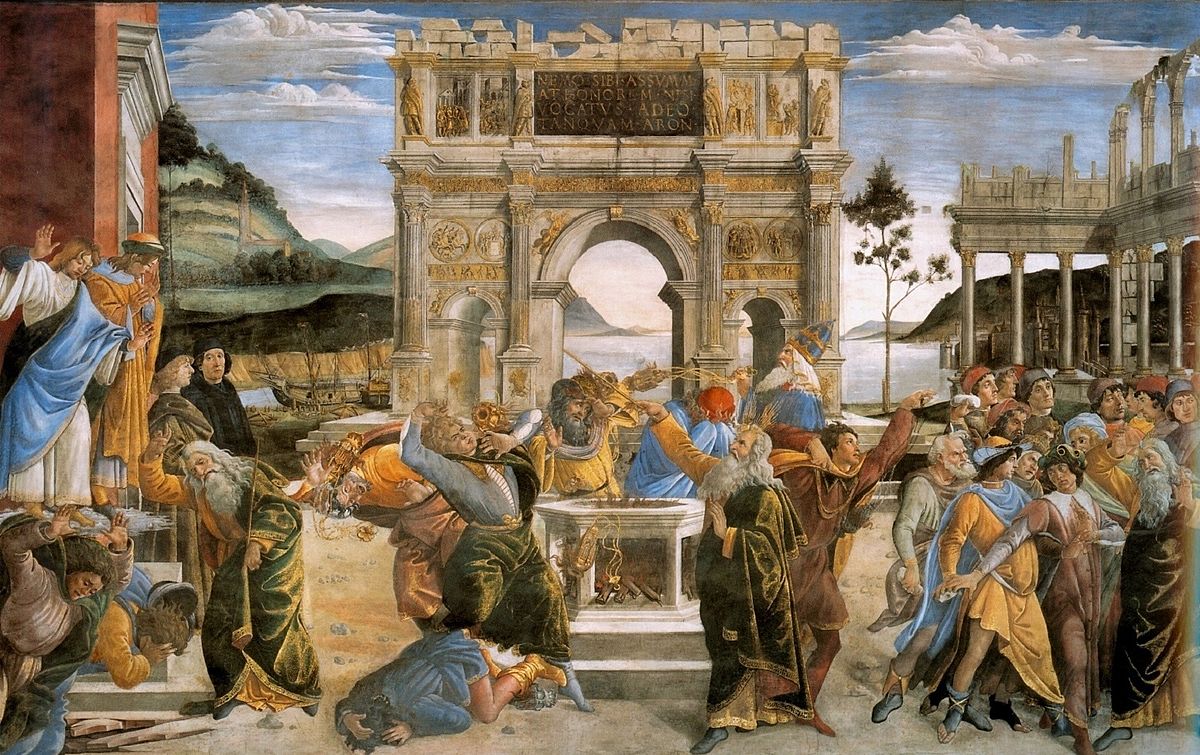What Is the Definition of Sin According to the Bible?
GOOD THING the writers of Scripture finally got around to defining sin for us. When left to the boys down at Seminary, they’ll manage to cook something else up entirely. Whatever they offer on the menu almost always smells of GMO though. I said finally, and that is because Yochanan saw the writing on the wall. He wisely managed to slip a thorough definition into one of his epistles before the doctrines of men managed to wrangle and then completely ruin a perfectly straightforward narrative. It goes as follows:
Whoever commits sin transgresses also the Torah: for sin is the transgression of the Torah.
Yochanan Ri’shon (1 John) 3:4 [Cepher]
As you may have noticed, I took the highlighter and red marker out, sparing no expense. I allowed for a break in the sentence so that you can see with your own eyes how how Yochanan repeats himself. That’s what I love about Yochanan. How very Hebrew of him. One can only wonder if he’d read somebody else’s Greek letters, wink-wink, and understood full well that generations of goyim would tirelessly debate Yah’s laws, saying Torah has been done away with and all that. Ridiculous.
That’s probably why he formed two thoughts into a singular deductive argument. You see, you can attempt to convince yourself that sin is one thing or another, but that’s all-oral tradition. I call it the Christian Talmud: when men come up with their own doctrines. It’s when people talk about sin that Yochanan slams on the breaks and adds: “Sin is also a transgression of Torah.” Now that he’s nabbed everybody’s attention, he puts gears in reverse, backs down the driveway several inches, and then clarifies, “Oh, by the way, whatever you might think sin is, there is no sin but the transgression of the Torah.” Yochanan then pulls down his shades and drives off down the street—owning it.
I decided to see how the Intel-net kingdom bouncers over at Got Questions attempted to explain away Yochanan’s definition of sin and, rather surprisingly, they didn’t. How odd. That’s so out of character. Well, technically, they delved into matters of Pauline theology within a hair’s breadth, but not before first taking the polar bear plunge to let you know First Yochanan presented the standard definition. But then immediately afterwards, all they could do is go off on a rant about Lucifer and hope you wouldn’t notice. I mean, if the Torah really had been done away with, then Yochanan didn’t receive the memo. For Yochanan, the fourth commandment was still a go. That would be Sabbath. Also, eating pork and treating tzitzits like last years fashion was a naughty no-no. The Torah abides.
And then, as if to really yank my chain, Got Questions even threw in a passage from Torah.
It reads.
Remember, and forget not, how you provoked Yahuah Elohayka to wrath in the wilderness: from the day that you did depart out of the land of Mitsrayim, until ye came unto this place, ye have been rebellious against Yahuah.
Devariym (Deuteronomy) 9:7 [Cepher]
Wow. Stop playing games with my heart, guys. Got Questions knows how to quote it. If only they could stick the landing too. I checked. The bouncers over at Got Questions have a hankering for pork. And I quote: “a good pork loin served with apples and nuts makes for a very fine meal!” Oh, sigh.
I checked again. The Sabbath has been done away with. Apparently, we no longer need Sabbath because we rest in Jesus now. Oh, do you, now? Jesus is also your bread and water. Are you telling me you no longer eat bread or drink water? How does that work, exactly? Or are we just conveniently picking and choosing our metaphors based upon Rome’s calendar? The cognitive dissonance must be a headache comparable to a collision with a 4-door Sedan and a moose, and I hear that’s a gripe. Rather than bouncers, what I should have said is gate keepers. Because that’s what they are. It’s their job to pass the Easter ham around so as to keep you unclean and enjoying your abominations during the feast of unleavened bread and Passover.
Oh, I get it. Jesus was obedient to his heavenly Father so that you wouldn’t have to be. Is that how it goes? The Freemasons and the Jesuits and the rest of the gatekeepers would have you believe we’ve got so much wasted paper in our Bibles. Except of course for the 28 percent of the New Testament written by Paul. If you’ve ever bought furniture at IKEA then you’ll recall what happens when you crack open the box. It comes with an instruction manual. Apparently, I am expected to believe that Yahuah, the Most-High Elohiym of Yashar’el, gave his children the instructions for set-apart living and then, quite suddenly, decided it was fleshly and a scurse to try and an obedience which only Satan wants from us. Is that how it goes? How our Slave Masters have inverted reality.
Quick history lesson. According to Deuteronomy, what were the children of Yashar’el rebelling against in the wilderness, exactly? Really, it’s okay, you can say it. Torah. They were rebelling against Torah. Therefore, even if someone attempted to convince themselves in the wilderness that Yah’s laws were done away with, they were still by definition being rebellious. Sounds like a lot of arguments I’ve heard of. You will tell me they hadn’t entered the land yet. Yeah, well, last I checked, we haven’t either. Still wandering. Waiting to cross that River Jordan. It didn’t end so well for Korah, but that’s probably none of my business.
Read it again. I beg of you. And then whatever you do, try not to let cognitive dissonance win the day.
Whoever commits sin transgresses also the Torah: for sin is the transgression of the Torah.
Yochanan Ri’shon (1 John) 3:4 [Cepher]
Noel
